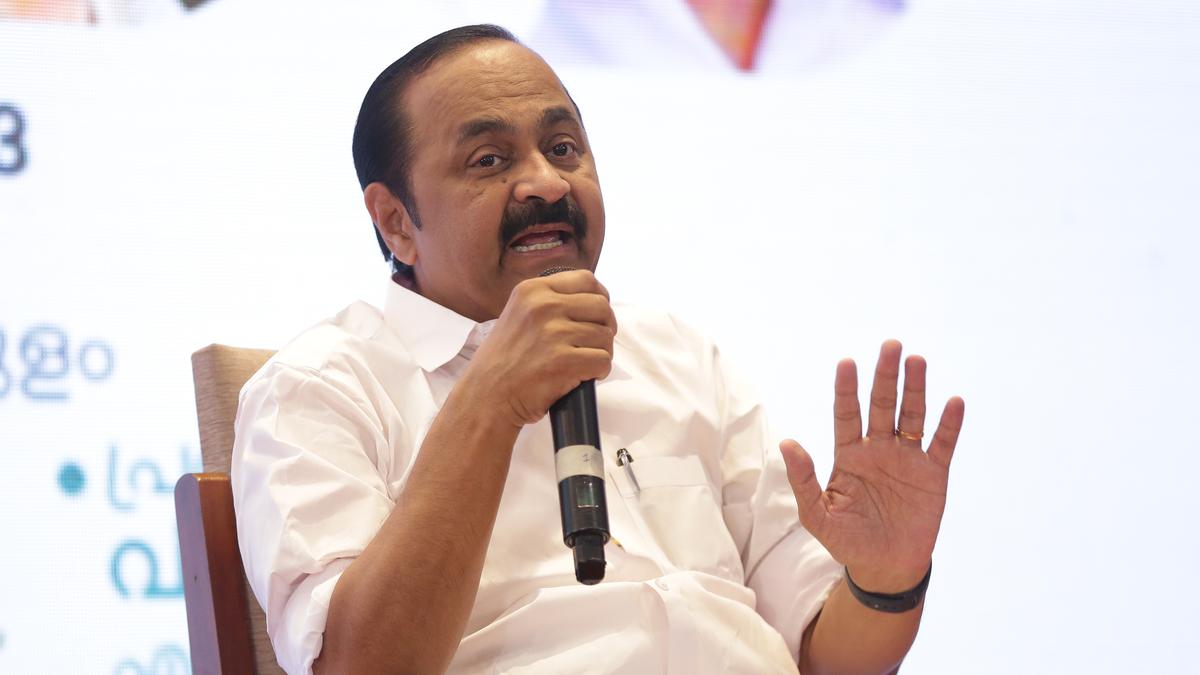Kerala Opposition Leader Criticizes Anti-Drug Drive
Politics NationalPosted by AI on 2025-04-19 13:33:53 | Last Updated by AI on 2026-02-05 07:45:57
Share: Facebook | Twitter | Whatsapp | Linkedin Visits: 20

"Has the Kerala government's war on drugs become a war on addicts?" This pointed question, raised by Leader of the Opposition V.D. Satheesan, highlights growing concerns over the effectiveness of the state's anti-narcotics campaign. Satheesan argues that the Left Democratic Front (LDF) government's "much-hyped" enforcement drive has "missed the forest for the trees," focusing on hapless addicts while allowing the major drug traffickers to operate with impunity.
Satheesan's critique comes amid an intensified crackdown on drug use in Kerala. While the government touts increased arrests and seizures, the opposition leader contends that these statistics paint a misleading picture. He alleges that the campaign disproportionately targets low-level users and small-time peddlers, filling jails with addicts who need treatment, not incarceration. Meanwhile, the "big fish"—the powerful individuals orchestrating the drug trade—remain elusive, continuing to profit from the misery of addiction. This approach, Satheesan argues, fails to address the root of the problem: the supply chain that fuels the state's drug crisis.
The opposition leader’s call for a more strategic approach emphasizes the need to dismantle the networks that bring narcotics into Kerala. He advocates for increased intelligence gathering and inter-agency cooperation to identify and apprehend the kingpins of the drug trade. Satheesan also stresses the importance of rehabilitation, arguing that treating addiction as a public health issue, rather than solely a criminal one, is crucial to breaking the cycle of drug abuse. He envisions a system that offers comprehensive support to addicts, including access to counseling, therapy, and vocational training, enabling them to reintegrate into society.
The debate over the effectiveness of Kerala's anti-drug strategy underscores the complex challenges posed by substance abuse. While the government maintains its commitment to eradicating the drug menace, the opposition's criticism raises fundamental questions about the focus and impact of the current approach. The need for a balanced strategy, one that combines robust enforcement with effective rehabilitation and a relentless pursuit of the major drug traffickers, is becoming increasingly clear. This requires a shift in focus, from netting small-time users to dismantling the complex networks that supply them. The future success of Kerala’s fight against drugs hinges on whether the government heeds these calls for a more comprehensive and strategic approach. As Satheesan succinctly puts it, “The real victory lies in catching the suppliers, not just the supplied."
Search
Categories
Recent News
- Schools Unite Against Substance Abuse
- Industrialist's High-Flying Escape: A Tale of Mumbai-Pune Expressway Woes
- Gold and Silver Prices Plunge: Mumbai's Market Update
- Market Movers: Tech Giants, Telecoms, and Consumer Brands in Focus
- Yoga Guru's Selfless Service: A Cabinet-Rank Advisor Without Pay
- Former Cricket Coach's Child Embarks on Gender Transition Journey
- Propylene Gas Tanker Crash Snarls Mumbai Traffic for Over a Day
- Custodial Death Confirmed: CBI Exposes Police Brutality in Sivaganga
Popular News
- Navigating IPO Market Dynamics Amid Volatility and Regulatory Changes
- Massive Worldwide Microsoft Outage Disrupts Multiple Sectors
- Panjapur Bus Stand to Reshape TNSTC Routes
- తెలుగుదేశం పార్టీ - పేదరికాన్ని నిర్మూలించడంలో వాగ్దానం
- Universities Embrace Remote Learning Technologies Amidst Ongoing Pandemic